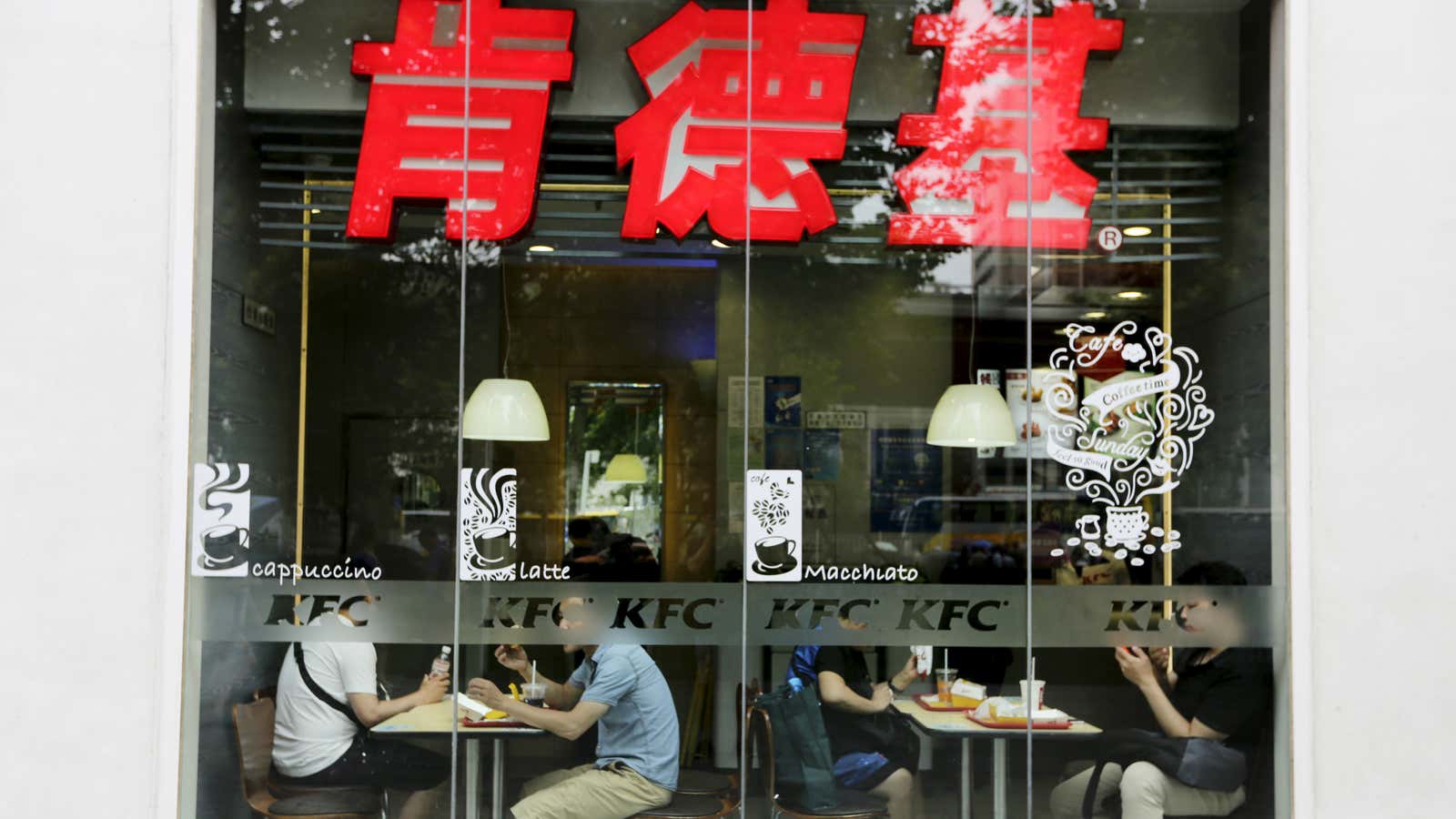Hold the fries. Actually, hold everything.
That’s increasingly the message Chinese consumers are sending Western fast food chains. Only 51% of consumers in China said they ate Western fast food in 2015, according to a report (pdf) by McKinsey & Company, a consultancy. That’s a drop from the 67% who said they consumed fast food in 2012. They have since shifted to healthier, more environmentally-friendly brands.
The survey by McKinsey included 10,000 respondents from 44 cities, representing approximately 75% of
China’s GDP and one-half of the Chinese population. The survey took place between September and November 2015.
In all, 38% of Chinese consumers reported food branded as “organic” and “green” was one of the top ways they identify the safety of food products, despite the fact no credible organic certification exists yet.
“Some companies developing credible food certification standards have shown promise,” the report states. “For example, in 2009, Olé became one of the first supermarkets to focus on selling organic and imported foods.” Olé is the premium brand supermarket chain of China Resources Vanguard Co.
The trend toward healthier food is entwined with food safety concerns, which remain a source of worry throughout the Chinese population. The Chinese government in 2015 began implementing a sweeping food safety policy (pdf). For many years, big Western brands, including Yum Brands’s KFC, benefitted because Chinese consumers saw them as a cleaner, safer alternatives to local options. But Yum, in particular, took a major hit in 2014 when a tainted meat scandal hit it following problems with avian influenza.
